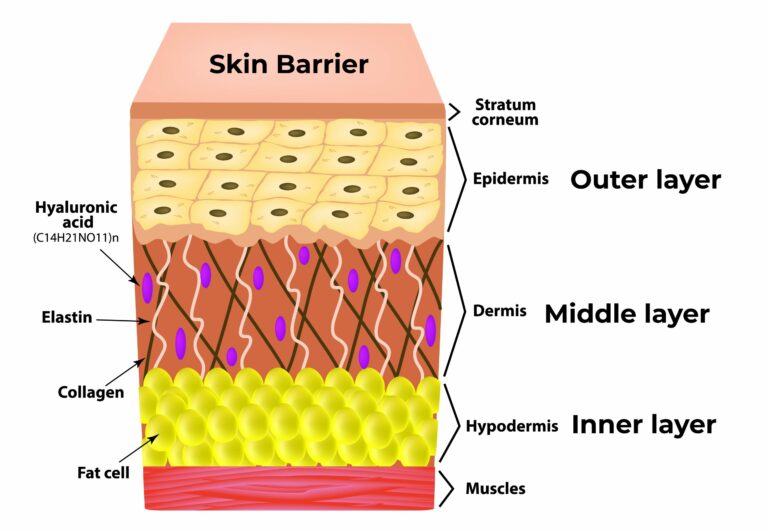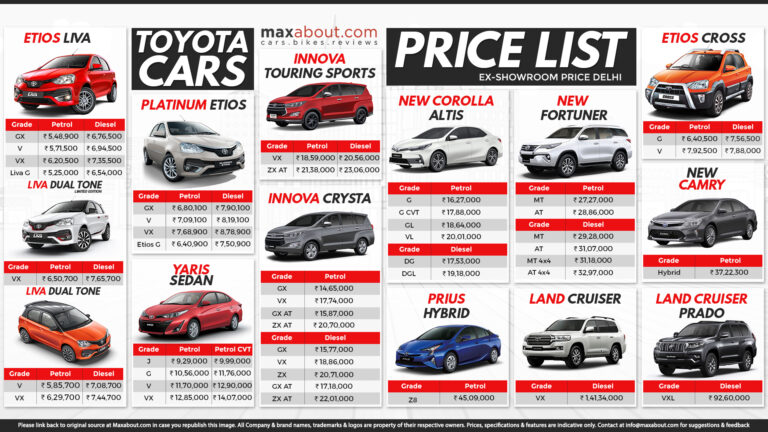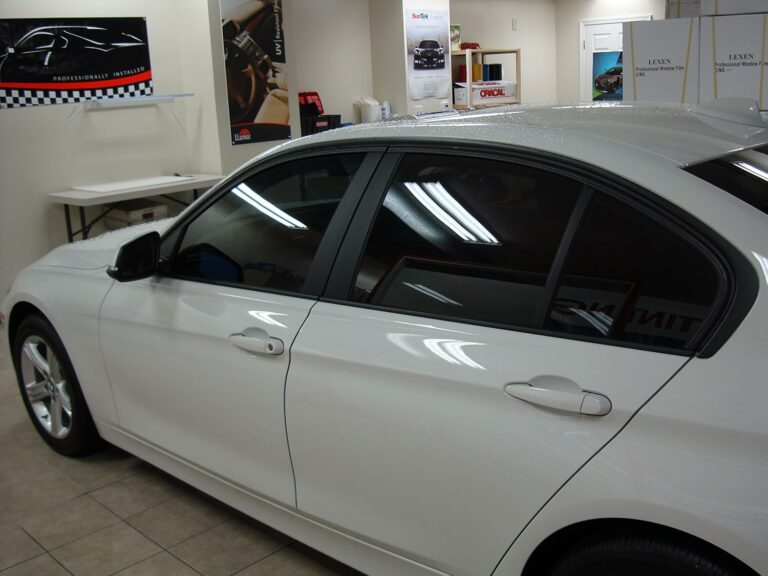Different Car Brands: A Comprehensive Guide to Navigating the Automotive Landscape
Different Car Brands: A Comprehensive Guide to Navigating the Automotive Landscape cars.truckstrend.com
The world of automobiles is vast and incredibly diverse, populated by an array of car brands, each with its unique identity, history, and technological prowess. From the bustling streets of Tokyo to the autobahns of Germany, and the sprawling highways of America, these brands shape our transportation, reflect our lifestyles, and drive innovation. Understanding "Different Car Brands" isn’t just about recognizing a logo; it’s about comprehending the intricate tapestry of engineering philosophies, design principles, market strategies, and consumer perceptions that define the global automotive industry. This guide will delve deep into the multifaceted world of car brands, offering insights to help you navigate this dynamic landscape.
The Global Tapestry of Automotive Brands: Categorization and Characteristics
Different Car Brands: A Comprehensive Guide to Navigating the Automotive Landscape
Car brands can be broadly categorized based on their market positioning, heritage, and the primary characteristics they emphasize. This categorization helps in understanding their target audience and their core offerings.
1. Mainstream/Mass-Market Brands: The Everyday Workhorses
These brands prioritize practicality, reliability, affordability, and broad appeal. They offer a wide range of vehicles, from compact sedans and family SUVs to pickup trucks, catering to the everyday needs of the majority of consumers.
- Examples: Toyota, Honda, Ford, Chevrolet, Hyundai, Kia, Volkswagen, Nissan.
- Characteristics: Focus on fuel efficiency, safety features, practical interiors, and a strong emphasis on reliability and lower total cost of ownership. They often lead in sales volume due to their accessibility and diverse lineups.
2. Luxury Brands: Epitomes of Prestige and Performance

Luxury brands are defined by their commitment to superior craftsmanship, advanced technology, refined materials, powerful engines, and exclusive ownership experiences. They cater to discerning buyers seeking comfort, status, and cutting-edge features.
- Examples: Mercedes-Benz, BMW, Audi, Lexus, Porsche, Cadillac, Genesis, Volvo.
- Characteristics: High-performance engines, premium interior finishes (leather, wood, metal accents), sophisticated infotainment systems, advanced driver-assistance systems (ADAS), and exceptional ride quality. Many offer extensive customization options.
3. Performance/Sports Car Brands: Built for Speed and Thrills
These brands are synonymous with exhilarating driving experiences, raw power, aerodynamic design, and track-ready capabilities. They are often less practical for daily use but offer unmatched performance and emotional appeal.
- Examples: Ferrari, Lamborghini, McLaren, Aston Martin, Porsche (also overlaps with luxury).
- Characteristics: Hand-built engines, lightweight construction, aggressive styling, exceptional handling, and exclusive production numbers. They represent the pinnacle of automotive engineering and design.

4. Electric Vehicle (EV) Specialists: The Future Forward
The rise of electric vehicles has given birth to new brands focused solely on sustainable, battery-powered transportation, alongside established brands transitioning their lineups. These brands often lead in software integration, charging technology, and autonomous driving features.
- Examples: Tesla, Rivian, Lucid, Nio, Xpeng, BYD.
- Characteristics: Long-range batteries, rapid charging capabilities, minimalist and tech-heavy interiors, over-the-air software updates, and a strong emphasis on sustainability and connectivity.
5. Niche/Specialty Brands: Unique Identity and Purpose
Some brands carve out a specific niche, focusing on particular vehicle types, unique engineering philosophies, or a distinct target audience.
- Examples: Subaru (standard AWD, safety), Jeep (off-road capability), Land Rover (luxury off-road), Mazda (driver engagement, premium feel).
- Characteristics: A strong, focused identity, often excelling in a specific area (e.g., all-weather capability, ruggedness, driving dynamics), fostering a loyal customer base.
Key Factors Defining a Car Brand’s Identity
A brand’s identity is more than just its logo; it’s a culmination of several defining elements:
- Heritage and Legacy: A brand’s history, iconic models, and racing pedigree often shape its current image and appeal (e.g., Ford’s Mustang, Mercedes-Benz’s long history of innovation, Ferrari’s F1 dominance).
- Design Philosophy: Each brand typically adheres to a distinct aesthetic. BMW is known for its "kidney grille" and sporty lines, Volvo for Scandinavian minimalism and safety, and Audi for clean, sophisticated designs.
- Engineering and Technology: This encompasses powertrain development (ICE, hybrid, EV), chassis tuning, safety innovations (e.g., Volvo’s pioneering safety features), infotainment systems, and advancements in autonomous driving.
- Brand Values and Perception: What does the brand stand for? Reliability (Toyota), driving pleasure (BMW), luxury (Mercedes-Benz), ruggedness (Jeep), or environmental consciousness (Tesla)? These perceptions are built over decades through product performance, marketing, and customer experience.
- Target Market: Brands strategically design vehicles and marketing campaigns to appeal to specific demographics – families, young professionals, adventurers, luxury connoisseurs, or performance enthusiasts.
Navigating the Market: Choosing the Right Brand for You
With so many options, selecting the right car brand and model can be daunting. Here’s practical advice:
-
Identify Your Core Needs and Budget:
- Lifestyle: Do you need space for a family, off-road capability, city maneuverability, or long-distance comfort?
- Usage: Daily commute, weekend adventures, performance driving, or occasional use?
- Budget: Not just the purchase price, but also insurance, fuel/charging, maintenance, and potential depreciation.
-
Research Brand Reputation and Reliability:
- Consult independent automotive ratings (e.g., J.D. Power, Consumer Reports, IIHS, NHTSA) for reliability, safety, and owner satisfaction.
- Read reviews from current owners and professional critics.
- Investigate recalls and common issues associated with specific brands or models.
-
Consider Total Cost of Ownership (TCO):
- Beyond the sticker price, factor in fuel efficiency, insurance premiums (which can vary significantly by brand/model), maintenance costs (luxury brands often have higher service costs), and projected resale value. Some brands are known for strong resale value (e.g., Toyota, Honda, Subaru), reducing long-term costs.
-
Evaluate After-Sales Service and Dealer Network:
- Is there a reputable dealership close by?
- What is the brand’s reputation for customer service and warranty support?
- Availability of parts and qualified technicians can impact your ownership experience.
-
Test Drive Multiple Options:
- Don’t limit yourself to one brand. Test drive several models from different brands that fit your criteria. Pay attention to driving dynamics, comfort, interior ergonomics, and technology interfaces.
-
Look Beyond the Badge:
- While brand perception is strong, sometimes a lesser-known or emerging brand might offer better value, more innovative features, or a driving experience that surprisingly suits you better than a more established competitor.
The Evolution of Car Brands: Trends and Challenges
The automotive industry is in a period of unprecedented transformation, driven by several key trends:
- Electrification: The most significant shift, with brands investing heavily in EV platforms, battery technology, and charging infrastructure. This is creating new opportunities for pure-EV brands and challenging traditional manufacturers to adapt.
- Autonomous Driving: The race for self-driving technology is intense, with brands integrating increasingly sophisticated ADAS features, moving towards fully autonomous capabilities.
- Connectivity and Infotainment: Cars are becoming extensions of our digital lives, with advanced infotainment systems, seamless smartphone integration, and over-the-air updates for continuous improvement.
- Sustainability: Brands are under pressure to reduce their environmental footprint, from manufacturing processes to material sourcing and vehicle emissions. This influences design, production, and marketing.
- Shared Mobility: The rise of ride-sharing and car-sharing services is changing how people view car ownership, prompting some brands to explore mobility solutions beyond traditional sales.
- Supply Chain Disruptions: Global events, like semiconductor shortages, have highlighted the fragility of complex supply chains, impacting production and sales across all brands.
- New Entrants and Competition: Tech giants and startups are increasingly eyeing the automotive space, bringing new business models and challenging established players.
Concluding Summary
The world of car brands is a vibrant, competitive, and constantly evolving ecosystem. Each brand represents a unique blend of history, engineering, design, and marketing, catering to diverse consumer needs and aspirations. From the robust reliability of a Toyota to the opulent luxury of a Mercedes-Benz, the thrilling performance of a Porsche, or the futuristic vision of a Tesla, the choices are immense. By understanding the core characteristics of different brands, identifying your personal priorities, and conducting thorough research, you can make an informed decision that aligns perfectly with your lifestyle and budget. The journey of car brands is far from over; it’s an exciting road ahead, paved with innovation, sustainability, and ever-evolving mobility solutions.
Different Car Brands: Illustrative Market Positioning & Characteristics
| Brand Name | Country of Origin | Primary Market Segment | Representative Price Range (USD) | Key Characteristics | Target Audience |
|---|---|---|---|---|---|
| Mainstream & Value | |||||
| Toyota | Japan | Mainstream/Reliability | $25,000 – $60,000 | Unmatched Reliability, High Resale, Practicality | Families, Commuters, Value-conscious buyers |
| Honda | Japan | Mainstream/Versatility | $24,000 – $55,000 | Reliability, Driving Dynamics, Practicality, Innovation | Families, Young Professionals, Urban Dwellers |
| Ford | USA | Mainstream/Trucks | $28,000 – $80,000+ | American Icon, Dominant Trucks/SUVs, Performance | Workers, Families, Truck/SUV Enthusiasts |
| Chevrolet | USA | Mainstream/Value | $26,000 – $75,000+ | Value, Trucks/SUVs, Iconic Sports Cars (Corvette) | Families, Truck Buyers, Sports Car Enthusiasts |
| Hyundai | South Korea | Mainstream/Value | $23,000 – $50,000 | Strong Value, Industry-leading Warranty, Modern Design | Budget-conscious, Tech-savvy, Value seekers |
| Kia | South Korea | Mainstream/Style | $22,000 – $50,000 | Bold Design, Value, Warranty, Diverse Lineup | Style-conscious, Value seekers, Families |
| Volkswagen | Germany | Mainstream/European | $27,000 – $65,000 | German Engineering, Refinement, Practicality | European Car Fans, Practical Buyers, Small Families |
| Nissan | Japan | Mainstream/Innovation | $23,000 – $50,000 | Innovation (EVs), Practicality, Value | Commuters, Small Families, Tech-curious buyers |
| Subaru | Japan | Niche/AWD | $26,000 – $45,000 | Standard Symmetrical AWD, Safety, Outdoor Lifestyle | Outdoor Enthusiasts, Safety-conscious Families |
| Mazda | Japan | Driver-Centric | $25,000 – $45,000 | Driving Dynamics, Premium Feel, Elegant Design | Enthusiasts, Design-conscious, Value-seeking Premium |
| Luxury & Premium | |||||
| Mercedes-Benz | Germany | Luxury/Innovation | $50,000 – $200,000+ | Prestige, Opulent Luxury, Cutting-edge Technology | Affluent, Status-conscious, Tech-savvy Luxury |
| BMW | Germany | Luxury/Performance | $45,000 – $180,000+ | Ultimate Driving Machine, Sportiness, Luxury | Performance-oriented, Affluent, Driving Enthusiasts |
| Audi | Germany | Luxury/Design | $45,000 – $150,000+ | Sophistication, Quattro AWD, Advanced Technology | Design-conscious, Tech-savvy, Luxury-seeking |
| Lexus | Japan | Luxury/Reliability | $45,000 – $100,000+ | Peerless Reliability, Refinement, Comfort, Service | Reliability-focused, Comfort-seeking Luxury |
| Volvo | Sweden | Safety/Luxury | $40,000 – $80,000 | Unrivaled Safety, Scandinavian Design, Sustainability | Safety-conscious, Luxury-minded, Environmentally aware |
| Cadillac | USA | Luxury/American | $50,000 – $120,000+ | American Luxury, Bold Design, Performance, Technology | American Luxury Seekers, Status-conscious |
| Genesis | South Korea | Luxury/Value | $40,000 – $75,000 | High Value, Distinctive Design, Advanced Technology | Value-conscious Luxury, Tech-savvy, Emerging Luxury |
| EV Specialists & High-Tech | |||||
| Tesla | USA | EV/Tech Leader | $40,000 – $120,000+ | EV Pioneer, Software-driven, Autonomy, Performance | Tech Enthusiasts, Early Adopters, Eco-conscious |
| Rivian | USA | EV/Adventure | $75,000 – $95,000 | Electric Trucks/SUVs, Off-Road Capability, Innovation | Outdoor Adventurers, Eco-conscious, Tech-savvy |
| Lucid | USA | EV/Ultra-Luxury | $80,000 – $180,000+ | Ultra-Luxury EV, Class-leading Range, Performance | Ultra-High Net Worth, Tech Enthusiasts, Early Adopters |
| Performance & Exotic | |||||
| Porsche | Germany | Performance Luxury | $70,000 – $250,000+ | Sports Car Icon, Engineering Prowess, Performance | Enthusiasts, Affluent, Performance-driven |
| Ferrari | Italy | Exotic/Performance | $250,000 – $1,000,000+ | Exclusivity, Racing Heritage, Unmatched Performance | Ultra-High Net Worth, Collectors, Enthusiasts |
| Lamborghini | Italy | Exotic/Performance | $220,000 – $600,000+ | Bold Design, Extreme Performance, Exclusivity | Ultra-High Net Worth, Collectors, Show-offs |
| McLaren | UK | Exotic/Performance | $200,000 – $1,000,000+ | F1 Heritage, Lightweight Construction, Pure Performance | Ultra-High Net Worth, Track Enthusiasts, Collectors |
Note: The "Representative Price Range" is highly generalized and can vary significantly based on model, trim, options, regional taxes, and market conditions. These ranges are indicative of the typical entry to high-end models for each brand and are subject to change.
Frequently Asked Questions (FAQ) about Different Car Brands
Q1: What makes a car brand "luxury" versus "mainstream"?
A1: Luxury brands typically offer higher levels of craftsmanship, premium materials, more powerful engines, cutting-edge technology, enhanced comfort features, and exclusive customer service. Mainstream brands prioritize practicality, affordability, and broad appeal, focusing on reliability and value for everyday use.
Q2: Which car brands are generally considered the most reliable?
A2: Brands like Toyota, Lexus, Honda, and Mazda consistently rank high in reliability studies (e.g., J.D. Power, Consumer Reports) due to their robust engineering, strict quality control, and relatively lower maintenance needs.
Q3: Are newer EV brands like Tesla or Rivian trustworthy compared to established brands?
A3: Newer EV brands often lead in technology, software integration, and range. While they may have less historical data on long-term reliability than century-old manufacturers, they are rapidly building their reputations. It’s crucial to research their specific models, battery warranties, and service networks, which can differ from traditional dealerships.
Q4: How do I research a car brand’s reputation for safety or performance?
A4: For safety, consult organizations like the Insurance Institute for Highway Safety (IIHS) and the National Highway Traffic Safety Administration (NHTSA) for crash test ratings and safety feature evaluations. For performance, read reviews from reputable automotive journalists, watch professional test drives, and compare specifications like horsepower, torque, and 0-60 mph times.
Q5: What’s the difference between a car brand and a car model?
A5: A brand (e.g., Honda, BMW, Ford) is the manufacturer that produces the vehicles, carrying its unique identity, engineering philosophy, and market positioning. A model (e.g., Honda Civic, BMW 3 Series, Ford F-150) is a specific type of vehicle produced by that brand, designed for a particular purpose or segment (e.g., compact sedan, luxury sport sedan, pickup truck).
Q6: Why are some car brands significantly more expensive than others?
A6: Price differences stem from factors like the quality of materials used, level of technology and engineering, performance capabilities, brand prestige, labor costs, and production volume. Luxury and exotic brands often use more expensive, handcrafted components and advanced R&D, contributing to their higher price tags.
Q7: Are certain brands better for resale value?
A7: Yes, some brands consistently hold their value better than others. Generally, brands known for reliability, low maintenance costs, and strong demand, such as Toyota, Honda, Subaru, and certain luxury brands like Lexus, tend to have better resale values. Performance and niche vehicles can also hold value if they are highly sought after or produced in limited numbers.
.jpg)






